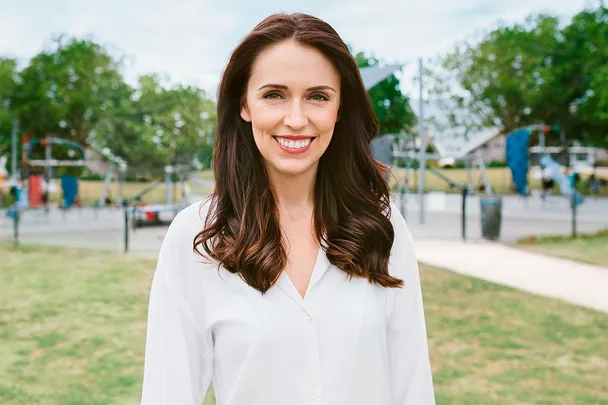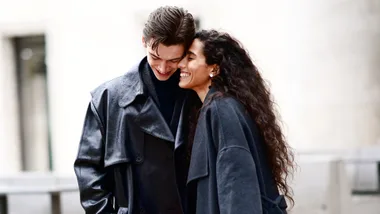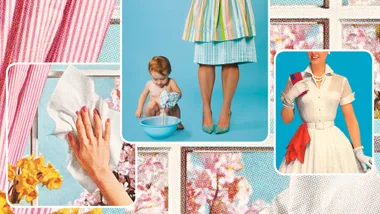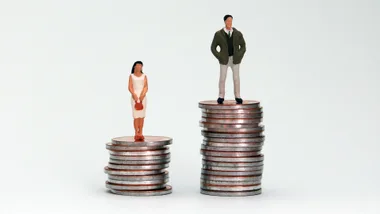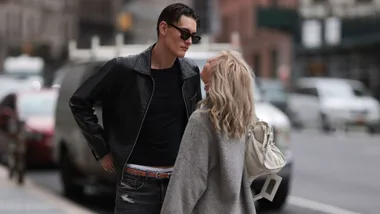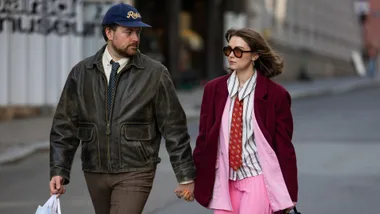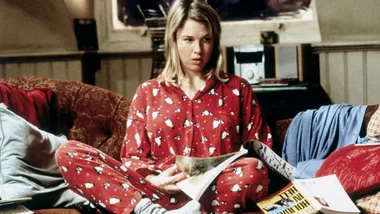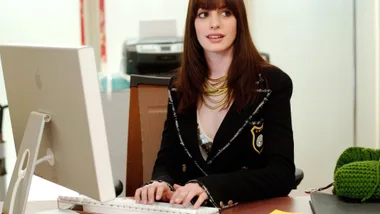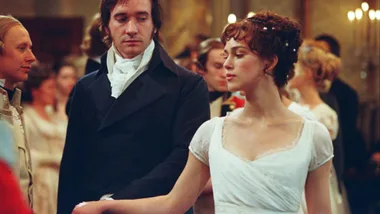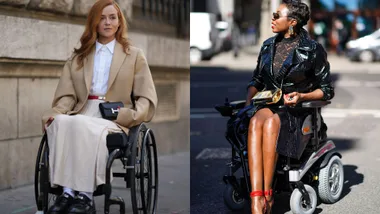This article originally appeared in the April, 2018 edition of marie claire Australia
Sitting in an ordinarily quiet café in Auckland, I notice the few early morning customers pick up a change in the air. Two policemen have arrived, then guards with walkie-talkies. Minutes later, a petite brunette with a huge smile and red lipstick walks in with a small entourage. “Hello, you!” Jacinda Ardern says warmly as she approaches me, arms extended for a hug. As we embrace, she starts asking me quick-fire questions about my life in the two or so years since we’d last seen each other. For anyone who knows Ardern personally, it’s no surprise she’s far more interested in my comparatively mundane existence than her own astonishing life. In the past few months, she’s gone from deputy leader of New Zealand’s Labour Party to leader, and then to Prime Minister of New Zealand at age 37 – the youngest in 150 years.
In her first month as PM, Ardern debuted on Forbes’ list of the World’s 100 Most Powerful Women at number 38 – ahead of Hillary Clinton and Beyoncé – received a phone call from US President Donald Trump, a “lovely” letter from Clinton and realised she can’t order a takeaway curry using her real name anymore without the restaurant thinking it’s a joke. It’s clear the sudden fame hasn’t changed her, though. A week after being sworn in, I noticed she’d popped over to wish our mutual friend’s daughter a happy birthday, before jetting to Australia to meet Malcolm Turnbull.
And now, of course, she’s been making headlines for something more personal: she’s pregnant with her first child with her partner, TV presenter and media personality Clarke Gayford, making her only the second world leader in history to have a baby while in the top job (the first being Pakistan’s Benazir Bhutto in 1990). Like many couples, Ardern admits her path to pregnancy wasn’t easy – revealing they had tried both naturally and “with help” to no avail. When Ardern was thrust into campaigning, she says their family plans were put on the back- burner … and then, it happened. “The fact that we knew we had issues was what made it such a surprise,” she says.
Upon announcing the news in January, the Prime Minister was hit with an avalanche of judgement. Some was positive: she was called a role model and held up as proof that women don’t need to choose between having a career and a family. Some was less so: with sniping digs about how the country was likely to fall to pieces under the stewardship of a new mother. “All I can do, really, is give people reassurance that it won’t [affect the job],” she tells me. “But I know I’m going to have to prove it.”
Her track record on juggling is already formidable. This is a woman who had 54 days to campaign, whose grandmother passed away five days before the election, whose much-loved Twitter-famous cat died on the first day of parliament and who managed all of it in the very early – and sensitive – stages of pregnancy. But in true Ardern fashion, she deflects any suggestion that she is some kind of superwoman, choosing instead to point out all the working mothers and women around the world who do it all, all the time. “The big difference is that I have a lot of help,” she says. “I think the true role models are the single parents who don’t have as much help as I’m going to have. I’m very mindful of that.”
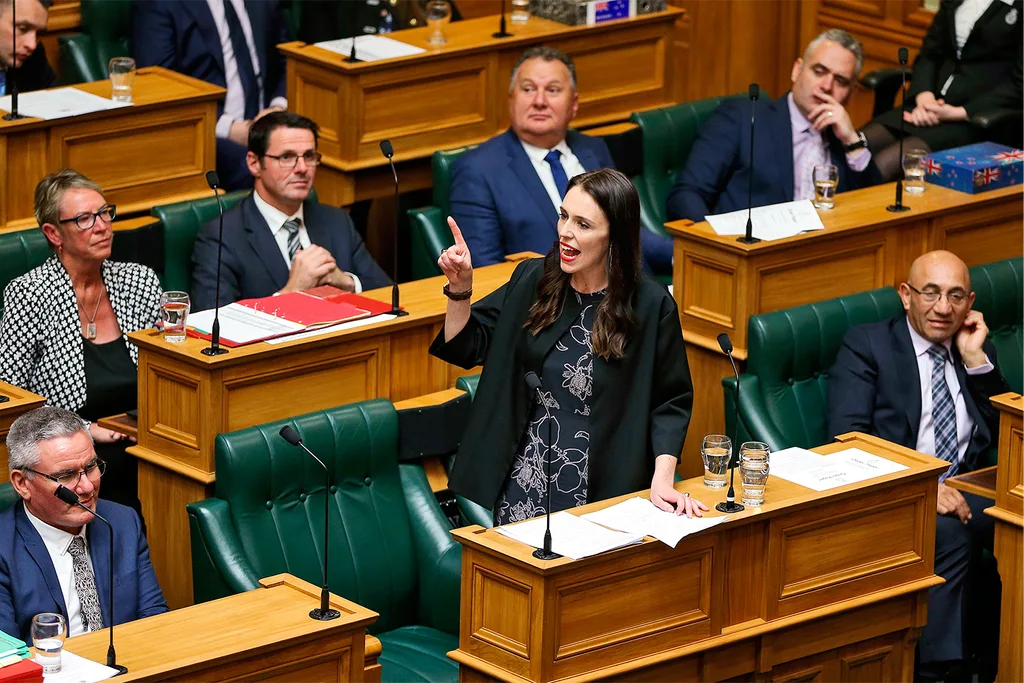
It was through Gayford that I first met Ardern in 2014. The passion, wit and sincerity, she has come to be known for was immediately clear, however, it wasn’t until she was made leader of the Labour Party that I realised she would one day be Prime Minister – although, I doubt either of us thought it would be quite so soon. Now, it feels surreal: Ardern is a household name, on TV every other night, meeting with – and one of the – most powerful people in the world. Acknowledging the change, I nod towards her bodyguards and say, “This is weird.” Ardern laughs and agrees, saying it probably won’t “sink in properly” for a while.
As we order drinks – a green tea for Ardern – we chat about the last time we saw each other at Splore, a popular NZ music and arts festival. We camped next to each other in the blistering
summer heat. “It was brutal,” she says, laughing. Knowing her as a fellow festival goer, it’s hard to reconcile this is the same woman who recently went viral for her perfect retort to Trump after he needled her for her “upset” election win. “No-one marched when I was elected,” Ardern hit back.
The youngest of two daughters, Ardern was raised a Mormon in Murupara, a forestry town of 3000 people, many of whom were born into poverty. “I saw a lot of kids who didn’t have what I had,” she says. “That did have an effect on me, even though I was very small.” She campaigned in high school elections on the platform that girls should be able to wear trousers to school, and by 17 she had begun volunteering for the Labour Party, doorknocking and delivering flyers in between working at the local fish n chip shop. In her early 20s, as her liberal views crystallised, she abandoned her Mormon faith because of its opposition to same-sex marriage.
By 2008, Ardern became New Zealand’s youngest Labour MP. “I am the first to concede that I am not a normal young person,” the bright-eyed 28-year-old told parliament in her maiden speech at the time. She was right. Less than 10 years later, she became the party’s youngest ever leader – and the second woman to hold the role. Like most females in a predominantly male industry – only about 30 per cent of New Zealand’s parliament is female – sexism has always been a reality of her career. But Ardern knows how to hold her own. As Labour leader, she offered a brilliant retort to a sexist remark by a radio show panellist who insisted that employers had the right to know whether women were planning on having children. “It’s totally unacceptable in 2017 to say that women should have to answer that question,” Ardern countered.
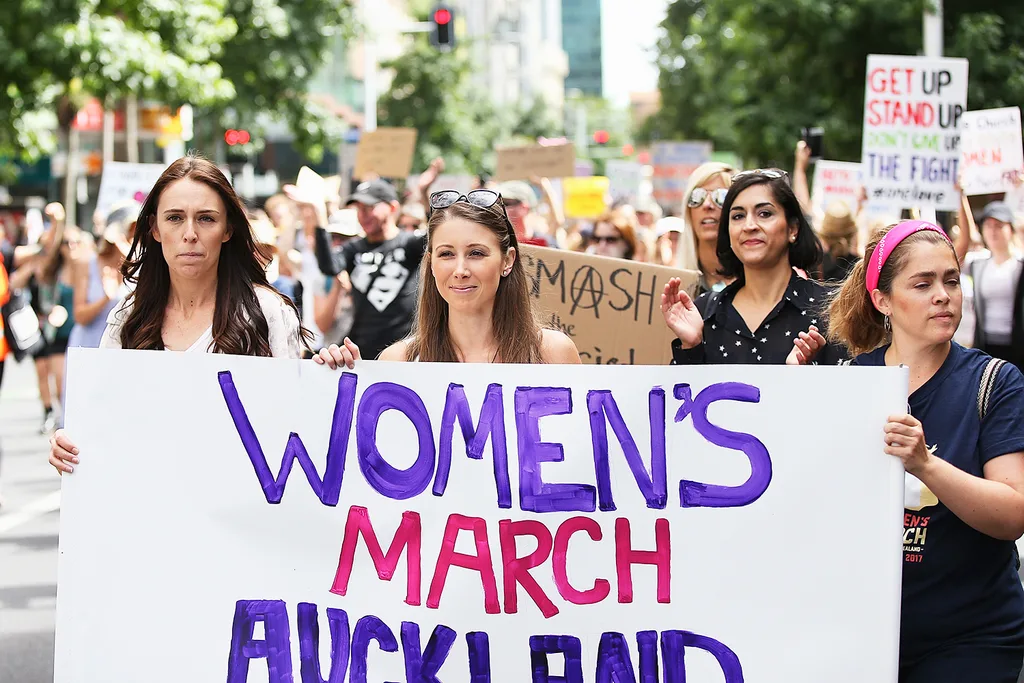
As a young person, she says she was always outraged when told she couldn’t do something simply because she was a girl. “It’s something I used to [get] quite feisty about,” she recalls.“I remember at primary school, there was a boy, Richard, who would always arm wrestle everyone and I insisted on a turn,” she told me. “Because why couldn’t I?” Eventually, he conceded. “And you lost?” I ask, assuming her small stature was overwhelmed. “No! I won,” she says, laughing. “I sneakily grabbed the table leg underneath me with my other arm, using it as leverage. Makes a real difference when you’re doing an arm wrestle, and I completely nailed him.” She looks triumphant for a moment. “I don’t know if that counts as my first feminist memory or my first memory of cheating,” she adds wryly.
It’s been reported that Ardern suffers from anxiety, and while it’s something she’s open about, she’s quick to assure me her levels are pretty normal for someone in her position. On coping mechanisms, she says, “There’s nothing wrong with protecting yourself and thinking, ‘Well, actually, I’m not going to go on social media today,’ or ‘I’m not going to read that’.”
She admits that she “spent a good amount of time in not particularly good relationships” prior to Gayford. “Realising you have someone you really adore, that’s the stuff that makes me happy,” she says. Ardern and Gayford’s relationship will almost certainly change with her significant career shift – Gayford will step into the full-time role of stay-at-home dad (“he will be wonderful,” she says) – but the PM counts herself lucky that her partner is a seasoned expert in being in the public eye: “I can’t imagine anyone would acclimatise better than he has.”
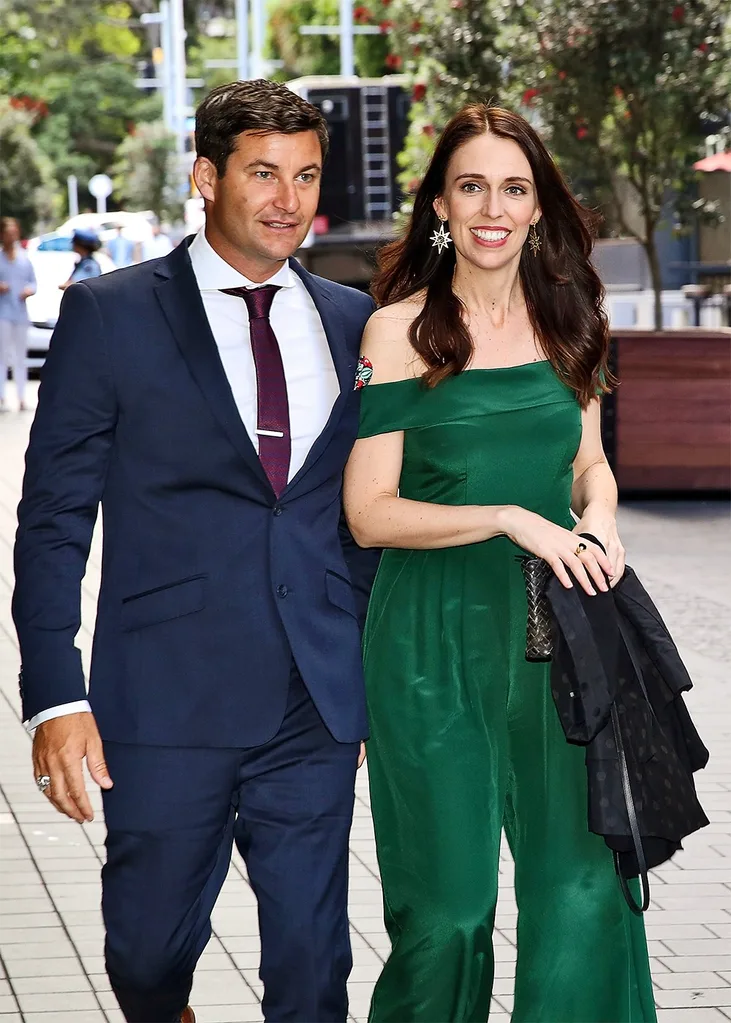
The two first met when Gayford sent a letter to Ardern expressing his concerns over a security bill being debated in parliament. They met for coffee and were friends first. Those who don’t know them personally might think that it’s a case of opposites attract – we are talking about a politician and a fishing show presenter, after all. But in actual fact, they’re two peas in a pod: dynamic, smart and witty. For years, Ardern has DJed in her spare time (though she prefers the term “tune selector” over being called a “real DJ like he is”) and Gayford has always been political, so much so that Ardern often comes home ready to switch off, only for Gayford to want to talk shop. My job is to make sure she stays sane, well-rested and eats properly,” Gayford says. “She’s going over notes and briefings until midnight each night and every day she’s up at 5:30am – sometimes earlier.”
As we leave the café, a woman sitting nearby interrupts: “Could you please look into the early childhood sector?” she asks. “Teachers haven’t got a voice.” Ardern stops to listen in full before replying, “Of course, I will do that. Thank you.” And you get the sense this is anything but a political brush-off. In fact, Ardern, who also holds the role of Minister for Child Poverty Reduction, says children are a huge motivator for her work. “If you give kids a good start in life, everything changes. It means we have made a change for the whole country.” Later, after her pregnancy has been revealed, she tells me: “You’re always trying to leave something good behind. I feel like that’s a very literal thing now.” Once outside, crowds start forming queues for photos. I’m shoved aside by iPhones thrusted from all directions. Ever considerate, Ardern mouths “sorry” to me over and over before noticing a news crew nearby, cameras and microphones at the ready. Moments later she’s fielding questions, answering each directly, eloquently and concisely.
While it’s clear that plenty has changed, what hasn’t altered is Ardern. She is still the same genuine, kind and incredibly smart woman I’ve always known. Still a friend you can laugh with over a wine (albeit not for the next few months). Just one who now happens to run a country.
